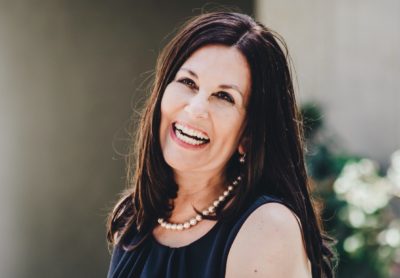GETTING OLDER / AGING COUNSELING

Pam and Leonard watched their children grow and blossom into young adults. Before they knew it, the kids finished college, got married, and had kids of their own. Just they’d adjusted to their empty nest and really started to enjoy life as just the two of them again, Leonard’s mother fell and broke her hip, and Pam’s dad was forgetting things like his address and phone number. In dealing with their own aging process, Pam and Leonard knew that they were also going to have to become caregivers for their own parents.
Alex was always a cheerful, giving man now in approaching 65. Even with the early death of his wife in her 50’s, his spirit, constant smile, and desire to press onward was something everyone admired. After he retired, he’d even taken to helping out as a driver for a local hotel, shuttling weary customers back and forth from the airport. But lately, he just hadn’t been himself. Though he didn’t always show it, he felt what could only rightly be described as “empty”. Family and friends began to notice, and they thought he might benefit from talking to someone.
Paul swept through his 20’s and 30’s making his way to lead salesman at a large advertising firm downtown. But for the last 5 years, he had this increasingly urgent feeling that if something major didn’t happen by 50, he was going to get left behind. He worked harder than ever, but neither his body nor his mind responded the way it used to, and he just couldn’t get as much done in as little time. His superiors were more than happy with his work, but he wasn’t exactly on the front line for promotions anymore. But the odd thing was that he had the same feeling in his personal life – he had great kids, a loving wife, a nice home – but he kept asking himself, “Isn’t there something more?”
Many people struggle to navigate the aging process.
Because aging happens to all of us, you’d think at some level we’d be relatively good at dealing with it! But in fact, many people find themselves struggling with the competing demands of children, parents, and jobs, all at times of life when they’re wrestling with their own aging process. What’s worse, persons younger or older may not be as sensitive to the struggles of aging as we’d like, and we may find ourselves frustrated at their lack of acknowledgment of the legitimacy of aging struggles.
When we’re children, twenty-somethings seem like full-blown adults. When we’re in our teens, people in their fifties seem ancient. But for those of us somewhere later in life, the aging process seems much more ambiguous. Often, we have difficulty telling how old younger people are. We find it somewhat shocking when peers our age are dating younger people. And so forth. Aging is a strange thing!

Dr. Bernard Nash, a social worker considered a pioneer in aging, once said, “Does it not strike you that we all want to live longer but none of us want to grow old?” The fact that we can all understand that sentiment at some level is a testimony to the accuracy of its sentiment. When we look around us, especially as media has driven forward themes of unreachable, unending, and unsustainable beauty for the past 50 years, many have become obsessed with staying young. But that isn’t to say that this is a terribly new phenomenon.
Literature is replete with fantasies of agelessness. Or have you forgotten about Ponce de Leon’s voyage to the Fountain of Youth? What about Aldous Huxley’s “Brave New World”, in which disease is nonexistent, and old age and death are made as pleasant as possible so they can be ignored? And there have been a hundred adaptations of fairy tales like Snow White (e.g., Mirror Mirror) and Rapunzel (e.g., Tangled) that feature evil old witches whose primary aim is to steal the spirit of the youthful, beautiful heroines that they might be “forever young.”
But not all fear is light-hearted. French existentialist Jean Paul Satre was associated with an author named Simone de Beauvoir, whose work “Old Age” described aging as “decrepitude, ugliness and ill-health”.
Founded Fears?
When we witness the responses of history and society to aging, it can be easy to dismiss all of the strong reactions as extremes. But looking at our own reactions may make us wonder a bit more, “What is it about aging that is so difficult?” Here’s a list of some of the most common themes among people struggling with the aging process. We think understanding some of these things gives a bit more meaning to the fear surrounding aging, and helps us respond more compassionately:
- One: Aging makes us confront our mortality. One day, all of us will die. Not exactly rocket science, but not exactly something we’re used to thinking about regularly either. The stark realization that we may have more days behind us than ahead can be off-putting to say the least.
- Two: Our accomplishments may not measure up to our own standards. When surveying our lives to this point, we may honestly wish we’d done more, and may be able to see clearly how our decisions have impacted our present standing. What’s more, we realize that there is nothing we can do to correct the past.
- Three: Aging brings change across the board. Our children become adults, and expect us to treat them as such. Our bodies start changing – we may see spots, streaks, or sags. Our employers may begin hiring more young people and talking to us about retirement. Our parents may become more dependent on us to help with things that they formerly handled with ease. Our spouse/partner may undergo physical or emotional changes. Our hair may turn gray or turn loose! People at restaurants may start offering us senior citizen discounts!
- Four: Practical matters pile up. As relationships shift, we begin to realize how we’re financially, emotionally, and otherwise tied to more people than ever. The practical demands can just be overwhelming.
 The Facts About Dealing with the Aging Process. Do You Know Them?
The Facts About Dealing with the Aging Process. Do You Know Them?- (True/False) Normal aging causes a slowdown of bodily functions while disease leads to a temporary or permanent breakdown in functioning.
- (True/False) Everybody ages in the same way.
- (True/False) As we age, the pupil of the eye becomes smaller and the field of vision shrinks.
- (True/False) Hearing loss due to aging is different for men versus women.
- (True/False) At 30 years old, a person has 245 taste buds per papilla; at age 70 the number of taste buds per papilla is 88.
- (True/False) There is a tremendous change in the sense of smell as we age.
- (True/False) The skin’s sensitivity increases as one ages.
- (True/False) Lung capacity lessens and respiration decreases with age.
- (True/False) Very few changes occur in the digestion process that are directly related to aging.
- (True/False) Metabolism slows down as we age.
- (True/False) Illness and disease affect sexual activity more than the aging process itself.
- (True/False) Generally, a man will lose 10 pounds of muscle between the ages of 30 and 70.
- (True/False) Bone density decreases with age.
- (True/False) Loosing teeth is part of the aging process.
- (True/False) The amount of blood the heart can pump decreases by about 25 percent between the ages of 30 and 70.
- (True/False) Normal aging is not linked to a loss of intelligence.
- (True/False) Older adults will be able to recall past events more vividly than recent ones.
- (True/False) If one can cope successfully with change and loss one will continue to grow.
- Coping successfully with change and loss involves: A. Feeling good about oneself; B. Giving and receiving help; C. Accepting others as they are; D. Doing everything for oneself;
- Basic needs, no matter what one’s age, are: A. To know one is loved, wanted and needed; B. To be socially involved and have companionship; C. To feel useful and be as self-sufficient as possible; D. To be recognized for positive things one is able to do
- (True/False) When people reach 65 years of age, they have approximately five years to live, on average.
- (True/False) After age 65, most people are over the hill and on a downhill slide.
- (True/False) You can tell a lot about a person just by knowing his or her age.
- (True/False) Ask most older people, and they will say their health is excellent or good.
- (True/False) Older people are set in their ways: “you can’t teach an old dog new tricks.”
- (True/False) Normal blood pressure rates have changed in the past 20 years.
- (True/False) Lack of bladder control is to be expected in later life.
- (True/False) Older people require less sleep.
- (True/False) Older people are fearful of death.
- (True/False) People become more religious as they age.
- (True/False) It is normal for an older person to be depressed.
- (True/False) Drug misuse and abuse are problems among older people.
- (True/False) Most older people are in nursing homes.
- (True/False) Most older people are lonely and want to live with their children.
- Cut yourself some slack. It’s normal to fear change at some level, even if that change is an experience we share in common as humans, like aging. Stop beating yourself up about taking it hard. If you can’t stop, get some help. And don’t beat yourself up for that either!
- Remember that there’s still more time! You can still accomplish much more than you think you can. You may need to adjust your priorities, or your perspective about what’s worth accomplishing and what’s not, but many of the world’s most successful people didn’t head their most major milestones until they were on the back 9.
- Cut others some slack. Other people are not going to be as sensitive to your aging process as you are. It’s just reality. So, while you are being compassionate toward yourself, also relax into being more compassionate with others. Recognize that they too are experiencing shifts related to aging and other factors that are difficult. In that sense, you may have more in common than you think.
- Learn to ask for help. A hallmark of persons struggling with the aging process is that their difficulties are often an outgrowth of (or exacerbated by) their reticence to appropriately ask for help. Church members, friends, and other family members are all potential sources of help. If you run into dead ends there, find some help for yourself to manage the increased demands on you.
Looking for Help with Aging in St. Louis or Aging Counseling in St. Louis?
Message Us at contact@changeincorporated.org
Or use the form below — there’s no pressure.
Call Us
(314) 669-6242
ST. LOUIS COunseling Locations
NOW IN ONE EXPANDED & IMPROVED LOCATION TO SERVE YOU BETTER!
Change, Inc. South Hampton & 44:
3460 Hampton Avenue, Suite 204
St. Louis, MO 63139
PHONE/EMAIL HOURS:
Monday through Friday // 9a to 3p
Saturday // 12p to 3p
Contacts received before 3pm:
- returned the same business day
Contacts received after 3pm or on the Sundays:
- returned the next business day
314-669-6242 / 877-5-CHANGE (524-2643)
contact@changeincorporated.org
COUNSELING HOURS
7 DAYS PER WEEK:
10am to 9pm
